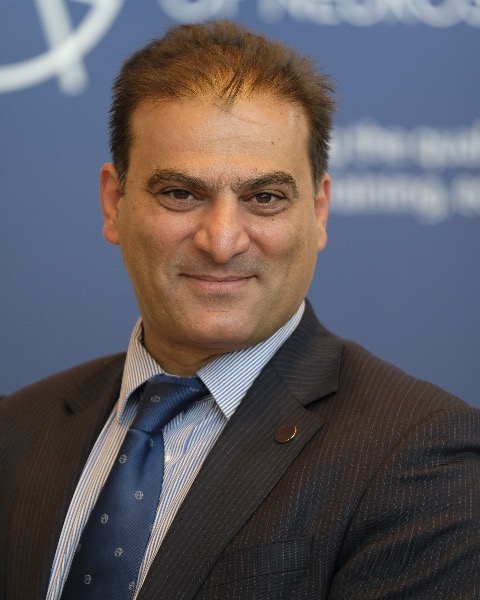Section Session
Section Session: History
(SSH) Norman Dott (1897-1973) and Bangour Hospital: Treating Spinal Cord Injury During World War II
Sunday, April 23, 2023
4:39pm - 4:48pm PST
Location: Los Angeles Convention Center, 406AB

Andreas K. Demetriades, FRCS, FEBNS
Consultant Neurosurgeon
Edinburgh
Edinburgh, United Kingdom
Presenting Author(s)
Disclosure(s):
Andreas K. Demetriades, FRCS, FEBNS: No financial relationships to disclose
Introduction: The optimal treatment for spinal cord injury inflicted during military conflicts has long been a source of controversy. This was evident during World War II, when an anticipated rise in spinal injuries accentuated the disunion of the healthcare system and the infantile state of neurosurgery within Scotland. This impending crisis accelerated the growth of neurosurgery within Edinburgh, which was built upon the foundations laid by Professor Norman Dott (1897-1973), a Scottish neurosurgeon. At the advent of WWII in 1939, the Emergency Hospital Scheme was introduced, which saw the development of a neurosurgical unit led by Dott at Bangour Emergency Hospital in Edinburgh.
Methods: This project reviewed the contributions of Norman Dott towards the development of neurosurgery in Edinburgh. Case notes, papers and correspondence of Norman Dott were sourced from local archives including the Lothian Health Services Archive (LHSA) and the Centre of Research Collections at the University of Edinburgh. This paper also examined the treatment for spinal cord injury at Bangour Hospital during WWII.
Results: The surgical technicalities of spinal cord injuries were analysed in parallel to contemporary views on nerve grafting, and open or closed treatment for blunt and penetrating spinal trauma. The treatment at Bangour Hospital was discussed along with its spinal unit counterpart at Stoke-Mandeville Hospital.
Conclusion : In conclusion, Dott made significant contributions in pioneering neurosurgery in Edinburgh. This translated into experience and expertise of the specialty, allowing spinal cord injuries to be treated surgically in Scotland during WWII at a time when hope was rather dim for recovery.
Methods: This project reviewed the contributions of Norman Dott towards the development of neurosurgery in Edinburgh. Case notes, papers and correspondence of Norman Dott were sourced from local archives including the Lothian Health Services Archive (LHSA) and the Centre of Research Collections at the University of Edinburgh. This paper also examined the treatment for spinal cord injury at Bangour Hospital during WWII.
Results: The surgical technicalities of spinal cord injuries were analysed in parallel to contemporary views on nerve grafting, and open or closed treatment for blunt and penetrating spinal trauma. The treatment at Bangour Hospital was discussed along with its spinal unit counterpart at Stoke-Mandeville Hospital.
Conclusion : In conclusion, Dott made significant contributions in pioneering neurosurgery in Edinburgh. This translated into experience and expertise of the specialty, allowing spinal cord injuries to be treated surgically in Scotland during WWII at a time when hope was rather dim for recovery.
